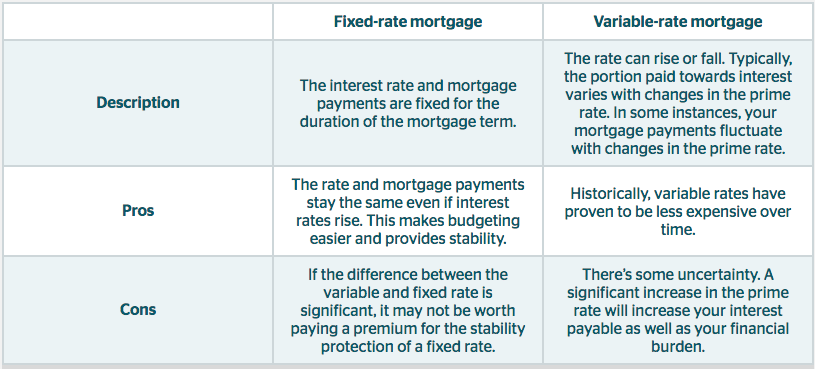The HECM origination charge maximum is $6,000. The upfront charges are flexible, so look around to make certain the costs you are being charged are affordable. After you close a reverse home mortgage, you need to be knowledgeable about how the lender will remain in touch with you. There are some essential things you'll need to communicate to your lending institution if your health or real estate requirements alter. When any of these circumstances take place, the reverse mortgage becomes due and payable. The most typical technique of payment is by selling the home, where proceeds from the sale are then used to repay the reverse mortgage loan completely. Either you or your successors would usually take duty for the transaction and get any staying equity in the house after the reverse mortgage loan is repaid.
A HECM reverse home loan guarantees that customers are only accountable for the amount their home offers for, even if the loan balance surpasses this quantity. The insurance coverage, backed by the Federal Housing Administration (FHA), covers the remaining loan balance. In circumstances when beneficiaries choose to keep the house rather of offering it, they might choose another type of payment.
Qualifying heirs might also re-finance the home into another reverse home loan. A reverse mortgage reward isn't restricted to these choices, however. If you would like to make payments on the reverse home mortgage throughout the life of the loan, you certainly might do so without charge. And, when making monthly mortgage payments, an amortization schedule can show helpful.
A way to do this is to calculate the interest plus the mortgage insurance for the year, and divide the quantity by 12 months. If you select to do this, you can feel confident that there are no penalties for making loan payments prior to its maturity date. Nevertheless, many customers select to enjoy the benefits of having no monthly home loan payments with the understanding that, at loan maturity, follows the sale of the house will be put towards payment of the loan balance completely.
For additional questions, consult with your tax consultant about reverse home mortgage tax ramifications and how they may affect you. Although the reverse home loan is a powerful monetary tool that taps into your house equity while deferring payment for an amount of time, your commitments as a homeowner do not end at loan closing.
What Does Which Of The Following Statements Is Not True About Mortgages? Do?
A reverse home mortgage is a helpful tool for senior house owners to help fund retirement. And, with a couple of alternatives for payment, you can feel great that you will find a technique that works the very best for your circumstance. To get more information about this flexible loan, call a reverse home loan professional at American Advisors Group to help you determine your choices for payment and the numerous ways you can take advantage of the loan's special features.
The track record of reverse mortgages has had its ups and downs considering that they were very first piloted by the Reagan administration. A financial tool that enables older people to tap home equity and age in location, reverse mortgages can maximize cash in retirement and, sometimes, remove a regular monthly mortgage payment.
Debtors who secured reverse mortgages prior to defenses were enacted are more vulnerable to getting in problem, while problems with inflated appraisals and complicated Take a look at the site here marketing still plague newer home mortgages." Ultimately, it's another monetary tool that's neither good or bad - which of the following statements is not true about mortgages?. It just depends on how you use it," stated Joshua Nelson, a Home page licensed monetary coordinator at Keystone Financial.
Without a plan, it can be devastating." Here's what you should understand. Possibly the best way to comprehend a reverse home loan is to compare it to a regular home mortgage. Both are loans backed by your home that needs to be paid back to the lender. But with a regular home mortgage, you're provided funds upfront to purchase a home and you need to start repaying those obtained funds right now monthly for a set variety of years.

The funds are offered as an upfront lump amount payment, over regular monthly payments, or as a credit line that you pay back only when you sell your house or die. There are no regular monthly payments. Most reverse home mortgages are backed by the Federal Real estate Administration and managed by the Department of Real Estate and Urban Development.

All About What Does Ltv Stand For In Mortgages
To qualify for a reverse mortgage, you should be at least 62 years of ages. Potential customers also must go through a house counseling session to ensure that they fully understand the ins and outs of a reverse mortgage. Reverse home loans are for main residences only. Financial investment properties and villa do not certify.
Normally, you can't borrow more than 80% of your home's worth, approximately the FHA maximum of $726,525 for 2019. Typically, the older you are, the more you can borrow. The rule of thumb on the percent you can borrow is your age minus 12, said John Stearns, a senior loan officer with American Fidelity Mortgage Services." State someone is 80, take 12 away, that's 68," he stated.
Your loan provider will examine whether you have enough disposable earnings to meet these obligations. In many cases, lending institutions may need that a few of the equity from the reverse home mortgage is set aside to click here pay those expenses going forward. Reverse home mortgages are an unfavorable amortization loan. That implies the loan balance grows in time.
There are 5 ways to have the funds from a reverse home mortgage distributed to you: You can take the money you're entitled to upfront. However you're required to take the amount in 2 amounts, with the second coming a year after the first. Normally, these kinds of reverse home loans included a fixed interest rate on the outstanding balance.
This reverse home mortgage generally has an adjustable rate of interest. You can get funds month-to-month for a specified duration. These regular monthly payments are typically larger than a period payment. The rate of interest is also adjustable. Under this circumstance, you don't take any money at all. Rather, you have a credit line you can make use of at any time.